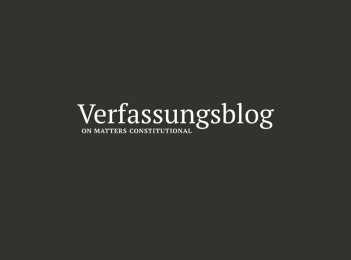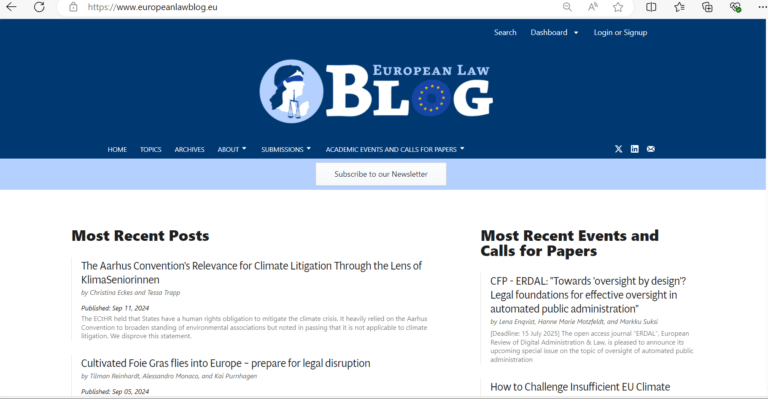Strategic Climate Litigation’s Direct and Indirect Consequences for Democracies
Funding
Congratulations to Professor Christina Eckes for being awarded a European Research Council (ERC) Consolidator Grant. Christina is Professor of European Law at the University of Amsterdam. The grant will enable her to create a team at the Amsterdam Centre for European Law and Governance to study the consequences for Democracy as a result of strategic climate litigation cases.
Strategic climate litigation is a sharply increasing phenomenon.
In recent years, climate litigation has become an increasingly powerful instrument to enforce or enhance governments’ climate commitments. Since the success of the Urgenda case in the Netherlands, climate cases have been filed worldwide.

As with other strategic litigation, climate litigation uses the courtroom with the goal of creating broader changes in society. It involves many actors (NGOs; media; politicians) and has many nuanced and indirect consequences.
Climate Litigation influences the democratic process at a time when democracy is considered already widely in decline. It creates authoritative narratives, frames perceptions, and ‘legalises’ the debate.
Theoretical Framework to study the consequences for the democratic process
The ERC grant will fund the research of Christina Eckes and her team to develop the missing theoretical framework that captures the direct and indirectconsequences of strategic climate litigation for the democratic process.
Based on multi-method case studies of strategic climate litigation in 4 national (Germany, France, Netherlands & UK) and 2 European jurisdictions (EU & European Court of Human Rights), Eckes will address the questions:
- How does strategic climate litigation affect the democratic process?
- How could its (neglected) democratic potential be realised?
The research guides the involved actors on how to navigate through the complex legal opportunity structures in light of strategic climate litigations’ interaction with the democratic process. By shedding light on the nuanced democratic implications of strategic climate litigation, the project contributes to enabling democracies to address the climate emergency itself.
About Christina
Christina Eckes joined the University of Amsterdam in September 2008. She completed her PhD research at the Centre of European Law at King’s College London. She also holds an LL.M (2003) from the College of Europe in Bruges, Belgium, and passed First State Examination in Germany (2002). Since 2016, she has been Professor of European Law and the director of the Amsterdam Centre for European Law and Governance (currently on leave). Her current research interests are the separation of powers in 21st century Europe and strategic climate litigation in Europe. Her most recent publications examine the legal and factual exceptionalism of climate litigation, climate constitutionalisation, and the normative relevance of climate science in litigation.






